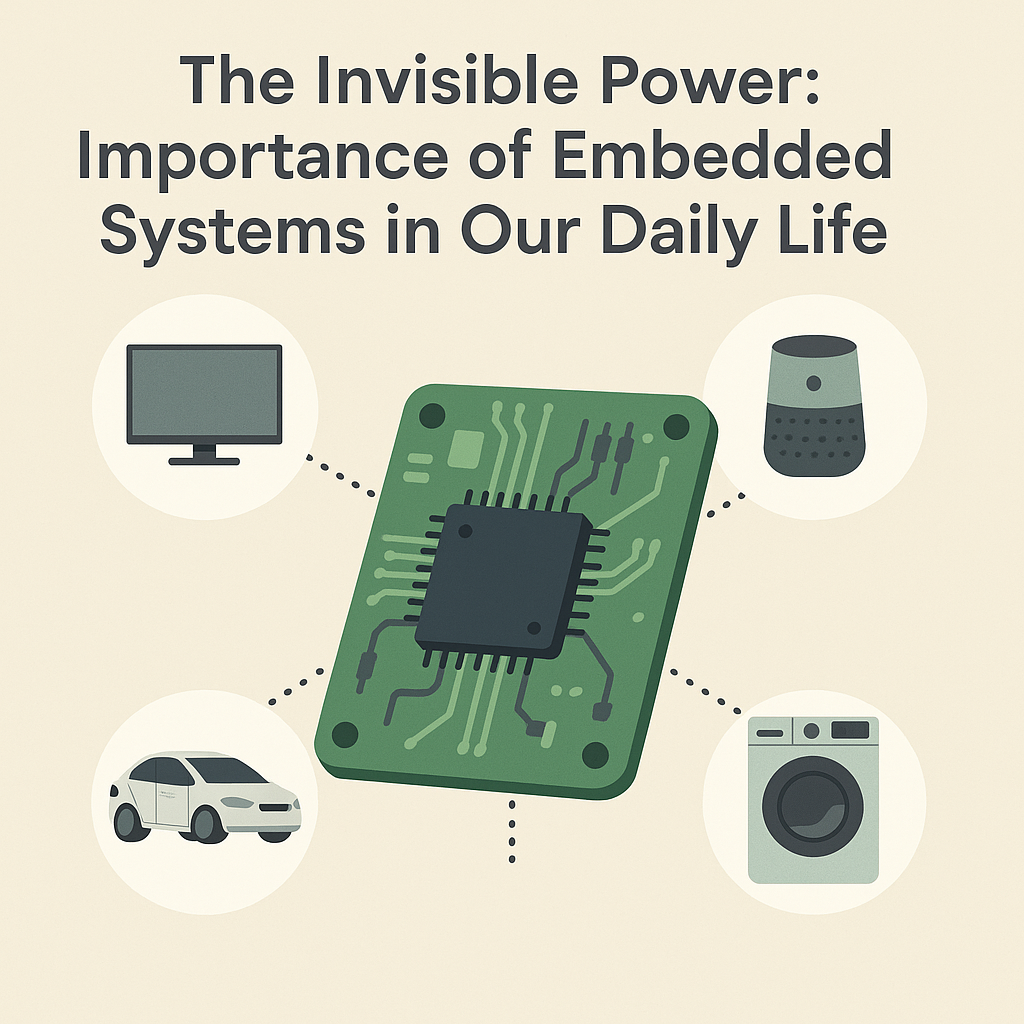When we think of technology, we often picture smartphones, laptops, or smart TVs. But behind the scenes, there’s a silent force that powers much of what we use daily — embedded systems.
What Are Embedded Systems?
An embedded system is a microcontroller-based system designed to perform a specific task. Unlike general-purpose computers, they are optimized for particular functions, making them fast, compact, and efficient.
Where Do We Encounter Embedded Systems?
Everywhere.
Here are just a few examples from everyday life:
- Smartphones and Wearables
- Microwave ovens and washing machines
- Smart TVs and home automation
- Automobiles with smart sensors and safety features
- Medical devices like digital thermometers and pacemakers
Even traffic lights, ATMs, and elevators rely on embedded systems to operate safely and efficiently.
Why Are Embedded Systems So Important?
- Efficiency: Designed for specific functions, embedded systems run faster and consume less power.
- Reliability: Often built for continuous use — think of a pacemaker or a car’s ABS system.
- Compact Design: They can be embedded into the tiniest devices.
- Automation & Intelligence: They bring intelligence to previously “dumb” devices — making our lives easier and smarter.
Real-World Impact
Imagine a world without embedded systems — no smart homes, no automated medical care, no modern cars. These tiny systems are the foundation of our digital lifestyle and will continue to shape innovations in IoT, AI, robotics, and smart cities.
Ready to Build Smarter Systems?
At Embedded Firmware Helper, we specialize in designing reliable, efficient embedded solutions tailored for your product. Whether you’re building a smart device, sensor node, or industrial control system — we can help.

